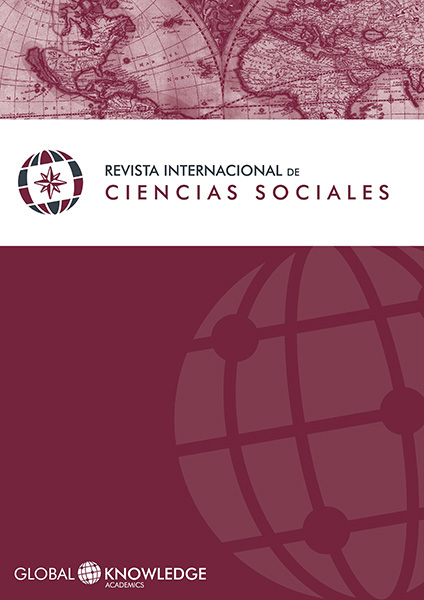The Miscegenation as Category Socio-Anthropological Founding in the Identity of America: The “Another Mestizo” of Latin America
DOI:
https://doi.org/10.37467/gka-revsocial.v5.1342Keywords:
America, Identity, MiscegenationAbstract
In this article we intend to redefine what miscegenation represents as a global, all-embracing phenomenon in Latin America, due to the importance of its current historical consequences. We attempt to understand this crucial fact within the Latin American identity. Miscegenation is not regarded as a minor category, neither as a mere temporary sociocultural stage. This process of fusion, hybridization and gathering (referred to as “the mestizo”) involves us totally. Such course of action has been developing since the colonial period, as a result of independence wars, following the establishment of nation states, mainly concerning the conservative liberal governments of the 19th and 20th centuries. Currently, this is perceived in the globalization processes which we are going through, along with their social, cultural, economic, political, and even epistemic consequences.
Downloads
Global Statistics ℹ️
|
780
Views
|
689
Downloads
|
|
1469
Total
|
|
References
Bonfil, G. (1979). El pensamiento político de los indios en américa latina, en Anuario Antropológi-co. Brasil: Ed. Tempo Brasil.
Bolívar, S. (1819). Discurso de la angostura.
Bourdieu, P. (1998). La esencia del neoliberalismo. Le monde Diplomatique. DOI: https://doi.org/10.17227/01203916.5426
De Sousa, B. (2006). Reinventar la democracia-Reinventar el estado. Buenos Aires, Argentina: Ed. Clacso Libros.
Dussel, E. (2004). Europa, modernidad y eurocentrismo. México: Univ. De Iztapalapa (UAM.1).
Dussel, E. (2014). Eurocentrismo y modernidad. En Walter M. (Comp.), Capitalismo y geopolítica del conocimiento. Buenos Aires, Argentina: Ed. Del Signo.
García, N. (2010). Culturas híbridas. Buenos Aires, Argentina: Ed. Paidós.
González, M. (1993). Nuestros indios. En Leopoldo Z. (Comp.), Fuentes de la cultura Latinoameri-cana. México: FCE.
Lowy, M. (1980). El Marxismo en América Latina. México: Ed. ERA.
Marchena, J. (1992). José Carlos Mariátegui. Rev. Historia 16.
Ortiz, F. (1991). Contrapunteo cubano del tabaco y el azúcar. La Habana, Cuba: Ed. de Ciencia Sociales.
Quijano, A. (2001). Colonialidad del poder y clasificación social. Journal of World-System Re-search. DOI: https://doi.org/10.5195/jwsr.2000.228
Roig, A. (2008). El pensamiento Latinoamericano y su aventura. Buenos Aires, Argentina: Ed. El Andariego.
Sabsay, F. (2006). José Carlos Mariátegui en Protagonistas de la historia T: 2. Buenos Aires, Ar-gentina: Ed. El Ateneo.
Sánchez-Albornoz, N. et al. (1968). La población de América latina. Buenos Aires, Argentina: Ed. Paidós.
Segato, R. (2007). La Nación y sus otros. Buenos Aires, Argentina: Ed. Prometeo.
Tapia, L. (2008). Política salvaje. Bolivia: Ed. CLACSO-Muela del Diablo-Comunas.
Wallerstein, I. (2004). El moderno sistema mundial. Madrid, España: Ed. Siglo XXI. http://es.wikipedia.org/wiki/Mestizaje
Downloads
Published
How to Cite
Issue
Section
License
Those authors who publish in this journal accept the following terms:
-
Authors retain copyright.
-
Authors transfer to the journal the right of first publication. The journal also owns the publishing rights.
-
All published contents are governed by an Attribution-NoDerivatives 4.0 International License.
Access the informative version and legal text of the license. By virtue of this, third parties are allowed to use what is published as long as they mention the authorship of the work and the first publication in this journal. If you transform the material, you may not distribute the modified work. -
Authors may make other independent and additional contractual arrangements for non-exclusive distribution of the version of the article published in this journal (e.g., inclusion in an institutional repository or publication in a book) as long as they clearly indicate that the work was first published in this journal.
- Authors are allowed and recommended to publish their work on the Internet (for example on institutional and personal websites), following the publication of, and referencing the journal, as this could lead to constructive exchanges and a more extensive and quick circulation of published works (see The Effect of Open Access).













